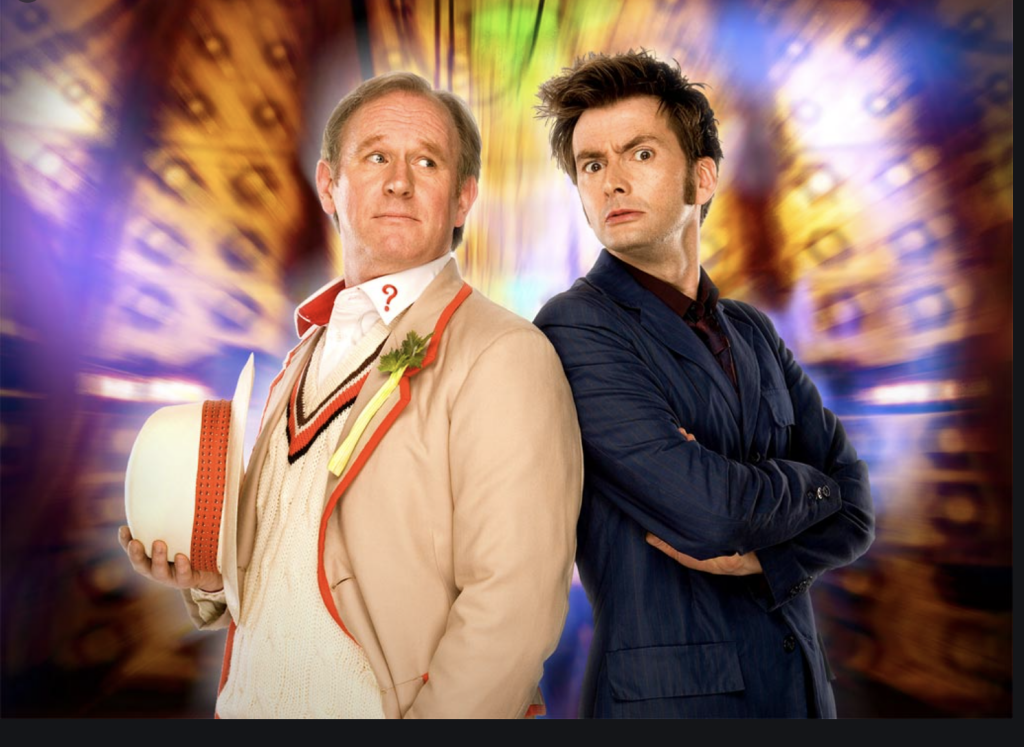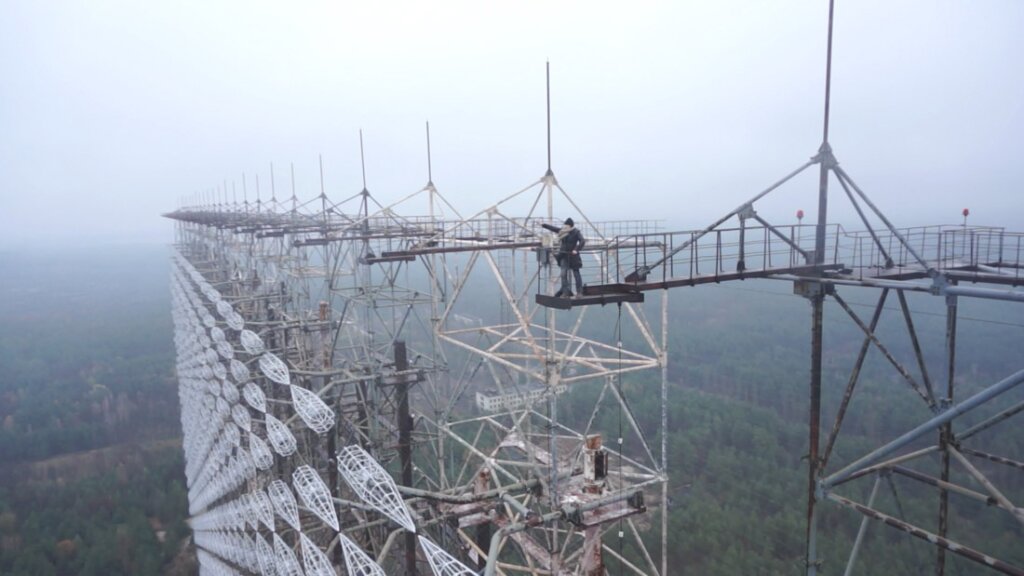This post is part of the Introduction to Unstuck in Time: On the Post-Soviet Uncanny, an ongoing Tuesday/Thursday summer feature on All the Russias. It can also be found on Eliot Borenstein’s website. To get email announcements about new posts, please write to eb7@nyu.edu
Our story of postsocialist Russia's complicated relationship with time begins with the most popular subgenre of Russian science fiction, which doesn’t even have a name in English: popadantsy. The word actually describes the heroes rather than the genre, but the heroes’ name has become the genre’s default nomenclature. Derived from the verb “popast'’” (in this case, to “end up somewhere” or “find yourself somewhere”), a popadanets (the singular of popadantsy) is someone who, usually through a completely mysterious or underexplained fantastic or science fictional plot device, ends up in another world, another dimension, or most often, another time. These sorts of stories have been and continue to be written by English and American authors as well, from Mark Twain’s A Connecticut Yankee in King Arthur’s Court to Octavia E. Butler's Kindred to the 1980s American television show Quantum Leap. But they are neither numerous nor popular enough to have coalesced into an identifiable genre. By “genre” I do not mean simply a set of familiar tropes (the Anglo-American stories certainly have those), but rather a set of expectations of narrative pleasures that a given exemplar of the genre should rightly fulfill.
Finding a satisfying English term for rendering popadantsy has been a challenge; the title of Chapter One characterizes them as “accidental historical tourists,” an awkward phrase that gives me no sense of translator’s pride. I’ve toyed with borrowing from the title of a 1960s Doctor Who serial and calling them “time meddlers,” but find it unsatisfactory. It suggests more agency than is often appropriate. Doctor Who nonetheless came to my rescue (it usually does), thanks to the title of a 2007 eight-minute "mini-episode" starring the actors who played the Fifth and Tenth Doctors. An accidental collision between their two time machines throws them together, a rare event given that they are from different eras. The episode's title? "Time Crash." I propose calling popadantsy "Time Crashers;" the phrase highlights the accidental nature of the travel, and also fits with the Russian term's etymology: "popadat'/popast'" has the root used for a variety of verbs involving falling, while the Russian equivalent of being hit by a car" is to "popadat'/popast' pod mashinu" ("to end up/fall under a car"). To crash something in English is to arrive uninvited, which certainly characterizes the journey of the popadanets. So Time Crashers they shall be.
Time Crasher stories play out on the cusp of two more familiar F&SF subgenres: time travel and alternate history. Certainly, these are time travel stories, but they tend to be about visiting (and often staying) at only one particular point in history, and are almost always the result of an accident. Few of the most familiar pleasures of hardcore time travel tales are to be found—no one is at all bothered by the idea of paradoxes resulting from the deaths of butterflies, grandfathers, or Hitlers. There is little or no reflection on the philosophy of time or causality, and the general preference for points in the national history is almost as distinctive as the lack of interest in the future.
One could, perhaps, look at Time Crashers as the fulfillment of an unconscious bias built in to the (non-paradoxical) grandfather of all modern time travel stories, H.G. Wells’ The Time Machine. As Wells’ traveler goes further and further into the future, he is presumably telling us what happens to our world, but geographically, his machine never goes much further than the London basement where it was constructed. The Time Machine literalizes the trope of British “insularity,” projecting it across the ages through its absolute conviction that a few hundred square meters of English soil are representative of the world at large. The most popular Time Crasher stories dispense with the pretense of speaking for the entire globe, though their chosen arena is much greater than the footprint of even the wealthiest English home: their world is Russia.
By the same token, Time Crashers cannot be simply assimilated to the category of alternate history, despite the genre’s popularity around the world and in Russia in particular. While alternate history certainly can involve time travel, it does not have to. Look no further than the genre’s foundational work, Philip K. Dick’s The Man in the High Castle, in which the Axis wins World War II. Dick’s novel speculates about the fictionality of its own scenario, but does not move back and forth between timelines (a possibility raised by the finale of the television adaptation's first season). Instead, Time Crashers are a variation of what Farah Mendelsohn calls “portal quest fantasy”, where characters find doorways to other worlds (Narnia, Oz), only here the other worlds are almost always the historical past. They are portal quest historical fiction (like Diana Gabaldon’s Outlander series), whose goal is often the creation of an alternate history. They are the subject of Chapter One.



